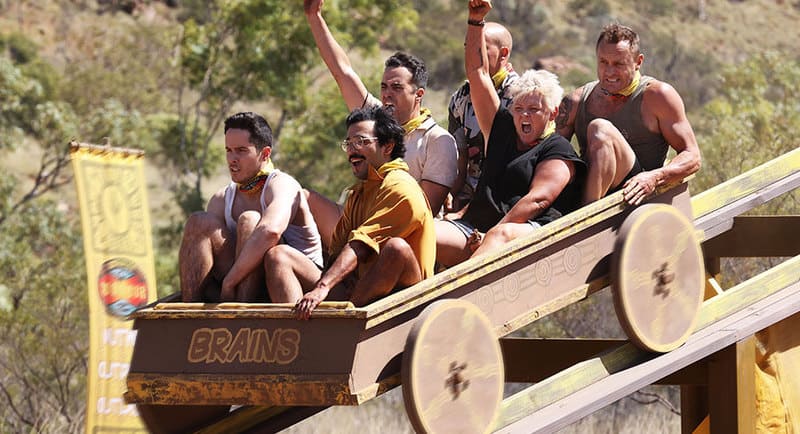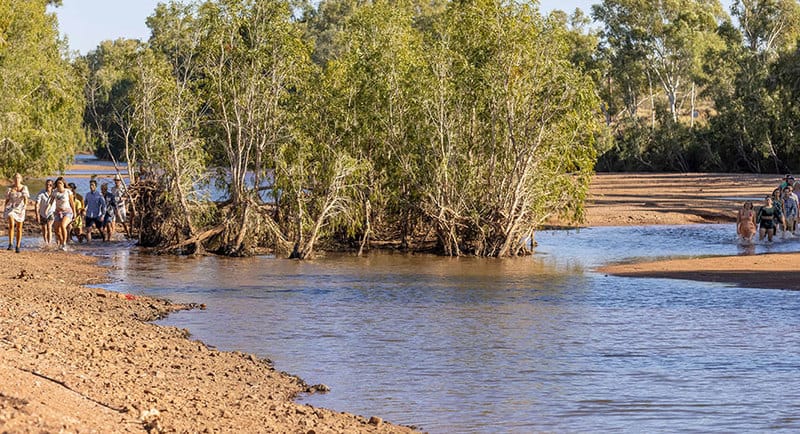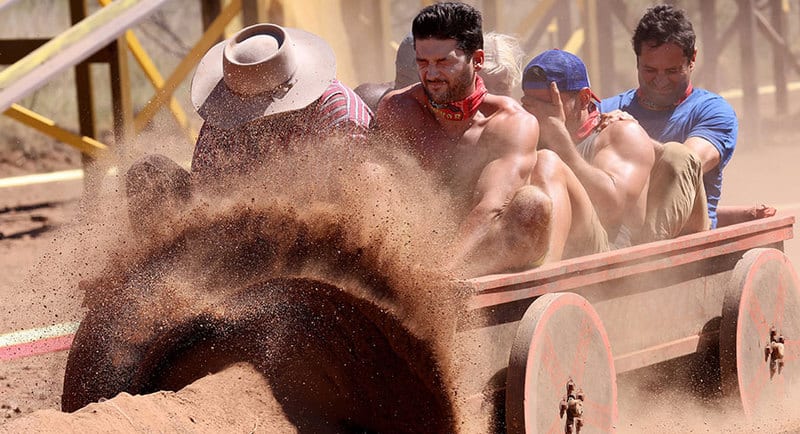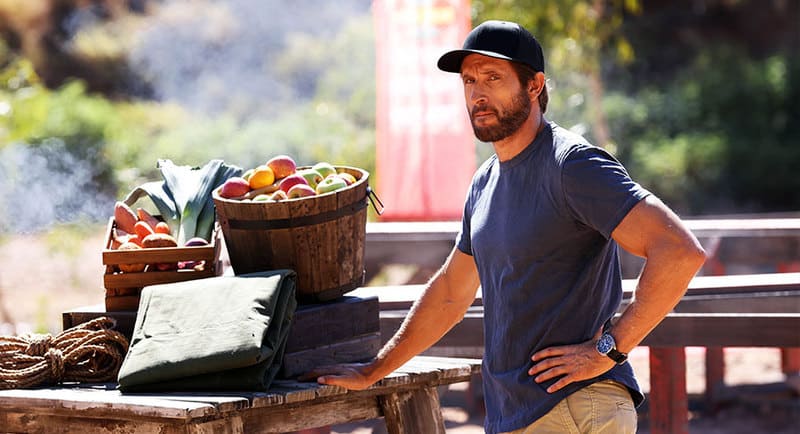After a long wait Australian Survivor returns to TV Sunday, 18 July at 7.30pm on 10 and 10 Play, with a new Brains V Brawn format.
Ahead of the premiere of the show’s latest season, Mediaweek spoke with 10 ViacomCBS’s head of entertainment Stephen Tate, and producer – entertainment Tim Ali about the new changes to the show and what to expect from the new location.
With Covid-19 meaning that Australian Survivor can’t return to its regular homes of Samoa or Fiji, earlier this year Queensland Premier Annastacia Palaszczuk announced that the show would be filmed in Cloncurry, 1,700 km north-west of Brisbane in outback Queensland.
The production would bring an estimated $14.6 million into the state’s economy and create approximately 150 jobs for Queensland crew members.
Ali was in Queensland for the whole production and said it was a fantastic experience that influenced the direction of the show.
Ali: “The main thing that people notice is that the look of the show will change. It is a really tough environment dirty, dusty, hot and cold and a rough game and rough environment.
“That made it really tough for the contestants. The tribe camps weren’t on beaches they were on dried riverbeds, so they were living on rocks and the sleeping conditions were very tough. There were no coconuts or papayas that they could just go and hunt down the beach, so they had to take that into account and come up with different ways of how they were going to feed themselves.
“It was also very tough for the crew because we were all in the same conditions, but obviously eating better.”

Filming in the outback
With the rare chance to film at home in Australia, both agreed that the new location will showcase the Australian outback.
Tate: “It really does look stunning; I think viewers will be so proud of our country when they get to see it.”
Ali: “I didn’t realise how beautiful the outback was, I have never been that remote before and it is definitely something to be proud of and we showcase it in such a magical way.”
The show was shot in Northwest Queensland and the pair said that one reason it was so far inland was to avoid saltwater crocodiles, but they also needed a location with a good supply of water.
Tate: “One of the things that is so important in Survivor is a good number of water challenges, and clearly the camps need water as well.
“We set up camp in this incredible river bed, and it is really beautiful, but instead of the beaches being white it is really ochre red.”

The new location also allowed the team to be more creative with the challenge setups and try new things that they hadn’t been able to do before.
Ali: “There were such vast untouched landscapes we had the opportunity to really have big challenge setups and make use of the space and those look incredible as well.”
Tate said that a lot of work went into bringing Survivor to the remote outback which brought its own types of logistical issues.
Tate: “For our crews who are building the challenges they were there months ahead of us and it can’t be forgotten they were standing out in the baking sun building these spectacular challenges right out to the end of the day where it would become freezing again.
“We employed a lot of locals in the community many of whom had lived in the area for many generations, and we had to lean on them for their knowledge.
“We also worked very closely with the representatives of the First Nations people in that area, and they taught us so much about the local wildlife and the local plant life, and you can’t help but be respectful when you are working with that breadth of knowledge.”
Brains v Brawn
Season five of Survivor was an All Stars season and featured what felt to be the culmination of many of the characters’ stories. The series also featured back-to-back appearances on the show from big personalities such as David Genat and Harry Hills. This season’s format of Brains v Brawn feels like a re-fresh of the Survivor narrative as it moves away from the semi-celebrity format of Champions v Contenders (season 3 and 4) and returns to a more classic format of mostly everyday Australians.
Tate: “I think it is important to return to a reset. Survivor at its heart is an everyman format.”
Ali: “We have done extremely well in setting up some new characters and some big players in the game. There are some brilliantly entertaining characters coming through and a kickoff to a new era for sure.”
When asked why they chose the Brains v Brawn format the duo said that it naturally sets up a great narrative.
Ali: “There are lots of different layers, lots of different stories to follow, and even though we have the brains and the brawn we really tried to balance between both tribes as well.”
Tate: “Survivor has probably the largest group of superfans than any franchise we have and they are very vocal about what they want, and we do listen to the fans. This is almost a by request format that we are working with at the moment.”
Tate said that that one reason that Australian Survivor is continuing to improve as a show is that Australians are learning how to play the game.
Tate: “The first couple of seasons, watching Australians play and do so in quite a tentative almost polite way, and now that they have accepted it is just a game, they are going for gold.”

Future Seasons
When asked if future seasons will automatically return to the beaches of the Pacific Islands, Tate said that he believes that is important to continue mixing it up.
Tate: “The location is a major character in the story of Survivor because that is what you are surviving. So, it is important that we don’t get stuck in a rut anywhere.
“We are already in production on another series of Survivor that we have shifted considerably to a whole new environment, so that series will have a different personality. It is still in Australia though.”
However, Tate also said that certain things about the setting of Survivor will always hold true.
Tate: “There are things people expect of Survivor, they expect it to be hot, so I don’t think you would do it in an alpine environment.
“Yes, we are loving working in Australia, and we are doing two series back-to-back in Australia, but would we be open to travelling to exotic climates once the world opens up again? Yes, I think we would be.”
